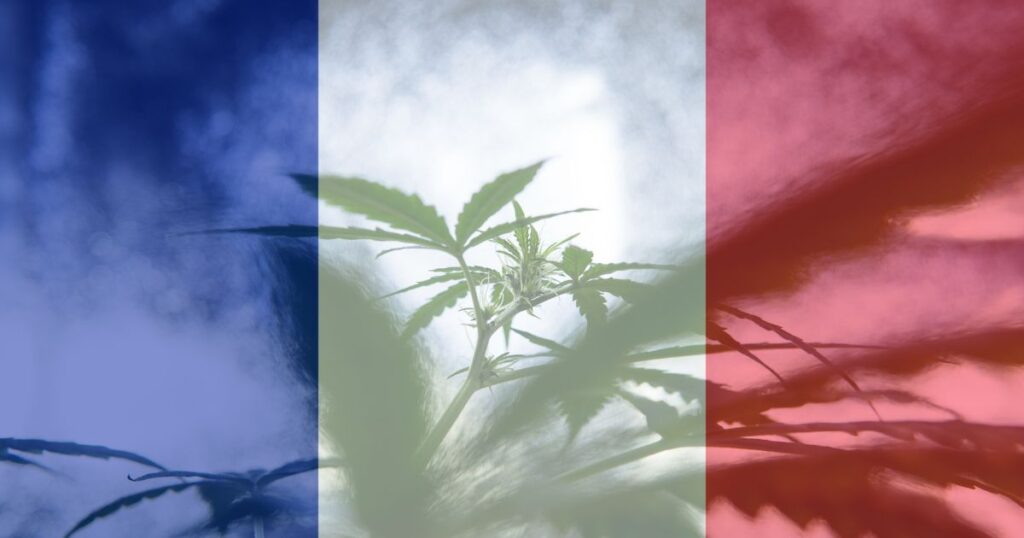France is making headlines in the medical cannabis world, transforming what seemed like a failed experiment into a national healthcare program.
After years of bureaucratic delays and political uncertainty, the country is now positioning itself as a potential model for medical cannabis integration across Europe.
The journey has been anything but smooth. France’s medical cannabis pilot program was announced in 2019 and later launched in March 2021, faced significant obstacles that nearly derailed the entire initiative.
Political changes, administrative bottlenecks, and the dissolution of the National Assembly in June 2024 created a perfect storm of delays. Many feared the program would become another casualty of France’s notoriously complex regulatory system.
However, March 2025 marked a turning point. The French government submitted three formal documents to the European Union, outlining a detailed framework for integrating medical cannabis directly into the country’s existing pharmaceutical system.
The Rocky Road in France from Pilot to Permanent Medical Cannabis Program
France’s medical cannabis story began with promise as outlined in a recent report of all things medical cannabis in France from Augur Associates and Newsweed.
The pilot program launched in 2021 was initially viewed as a model for other European nations. The program aimed to serve patients with specific conditions including treatment-resistant epilepsy, cancer-related symptoms, and refractory neuropathic pain.
The COVID-19 pandemic disrupted progress almost immediately. Political priorities shifted, resources were reallocated, and the careful momentum built around the program began to stagnate. Professor Nicolas Authier, Chairman of the Scientific Committee for the Medical Cannabis Pilot Programme, expressed frustration with what he called “intellectual laziness” and “dogmatism” within the government.
The situation worsened in 2024. The dissolution of the National Assembly in June disrupted the regulatory process and delayed crucial implementing decrees.
New patient inclusions were halted in March 2024, marking the end of the initial pilot phase. Existing patients were allowed to continue treatment until December 2024, but access to rapid inhalation forms was eliminated.
By the end of 2024, the program that once showed such promise appeared to be heading toward failure. Industry observers questioned whether France would join the growing list of European countries with stalled medical cannabis initiatives.
A Strategic Pharmaceutical Integration Approach
France’s new approach sets it apart from other European medical cannabis programs through its emphasis on full pharmaceutical integration.
Rather than creating parallel structures or special cannabis-specific pathways, French authorities are embedding medical cannabis directly into the existing pharmaceutical system.
This integration strategy addresses several challenges that have plagued medical cannabis programs elsewhere. Companies seeking to operate in France must either be registered as pharmaceutical operators or partner with existing pharmaceutical entities. Products must meet the country’s strict pharmaceutical standards, which are among the most rigorous in Europe.
The framework excludes raw flower products, except in sealed-vaporizer formats, focusing instead on oils, capsules, and standardized preparations. French health authorities believe this approach will facilitate larger acceptance among healthcare professionals and patients alike.
The system maintains strict prescription protocols. Initial prescriptions must come from hospital-based specialists or physicians working in specialized centers.
General practitioners can then take over ongoing care, but only after the initial specialist assessment. Prescriptions are limited to 28-day supplies and must be written on secured paper, with telemedicine explicitly prohibited.
Navigating the Challenges of Restrictive Implementation of France’s Medical Cannabis Program
While France’s systematic approach to medical cannabis offers advantages, it also creates significant barriers that may limit patient access. The program’s restrictions reflect the country’s conservative approach to cannabis policy and concern about potential misuse.
The prohibition on home delivery particularly affects patients with mobility issues. During the pilot program, patients had to pick up their medications from designated pharmacies, which created challenges for those with chronic conditions that limited their mobility.
The requirement for specialist initiation of all prescriptions creates another bottleneck. While approximately 3,000 healthcare professionals received training during the pilot program, this number remains insufficient to serve the estimated patient population that could benefit from medical cannabis.
The modular training system being developed aims to increase this number, but implementation will take time.
Perhaps most significantly, medical cannabis can only be prescribed as a “last resort” when conventional treatments have failed. This restriction means patients must demonstrate unsuccessful attempts with multiple conventional therapies before accessing cannabis-based treatments.
Critics argue this approach delays potentially beneficial treatments and maintains unnecessary barriers to access.
The prohibition on driving while using medical cannabis, regardless of blood levels or individual tolerance, further complicates patient lives.
This blanket ban contrasts with more nuanced approaches in other jurisdictions that focus on impairment rather than presence of cannabis compounds.
The Road Ahead and Market Implications
The French Health Authority (HAS) now holds the key to the program’s success. HAS published its official roadmap on July 29, 2025, detailing the evaluation process for cannabis-based medicines.
The authority is accepting public input until September 16, 2025, and expects to reach final reimbursement decisions by the end of the first quarter of 2026.
HAS will focus on five specific last-resort conditions: treatment-resistant epilepsy, cancer-related symptoms, refractory neuropathic pain, painful spasticity from central nervous system disorders, and advanced palliative care.
The evaluation process includes stakeholder hearings and comprehensive assessments of safety, efficacy, and cost-effectiveness.
Market projections suggest significant potential despite the restrictive framework. Analysts estimate the French medical cannabis market could reach €806 million in annual turnover by 2035.
International companies face complex entry requirements. The pharmaceutical integration approach means businesses must either establish pharmaceutical operations in France or partner with existing entities. European companies with EU-approved products may have advantages, though non-standard formats may require additional validations.
For patients and healthcare providers, France’s medical cannabis program represents both opportunity and challenge. The integration with pharmaceutical standards provides legitimacy and quality assurance, while the restrictive access criteria maintain significant hurdles.
The coming months will reveal whether France’s cautious approach can deliver meaningful patient access while maintaining the regulatory rigor that characterizes its healthcare system.
















